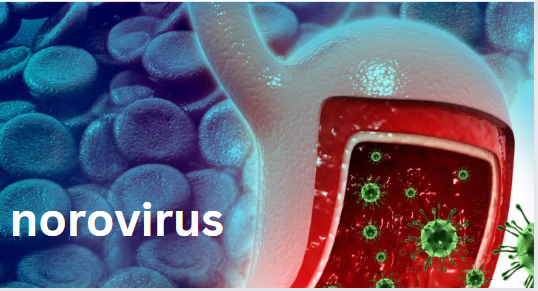Norovirus
“Norovirus is one of the most common stomach illnesses in the UK, causing vomiting and diarrhea. Although you can get it at any time of the year, it’s also known as the ‘winter vomiting bug’ because it’s more common in winters.
While norovirus can be quite inconvenient, it usually gets better on its own within a few days.
Most of the time, you can take care of yourself or your children at home.
Since norovirus can spread quickly to others, try to avoid going to your doctor’s office unless necessary. If you’re worried or need advice, call NHS 111 or your GP office.
Concerns about newborns less than a year old
When your child is sick, you might stop breastfeeding or bottle-feeding them.
Dehydration may appear as less wet diapers in children under five years old.
Even after taking oral rehydration pouches, you or your child (over five years old) continue to show signs of dehydration; you or your child get sick repeatedly and have difficulty drinking fluids; you or your child vomit for more than two days or have bloody diarrhea; you or your child have diarrhea for more than seven days.

You might have norovirus if you:
Suddenly feel sick and start vomiting
Have diarrhea that’s watery
Additionally, in some cases, there may be mild fever, headache, abdominal discomfort, and discomfort in the limbs.
Symptoms usually start appearing one to two days after infection and can last up to two or three days maximum.
How does norovirus spread?
Norovirus spreads rapidly in public places like elderly homes, schools, and hospitals.
It can enter your mouth through tiny openings left by the vomit or stool of an infected person:
Close contact with an infected person; this person can release small virus particles through their breath that you can inhale; touching contaminated surfaces or objects; consuming contaminated food; this can happen when an infected person handles or prepares food before washing their hands properly; and all symptoms are most infectious 48 hours after the end of all symptoms. Before and after this time, you may still be infectious for a short period.
You can help prevent it
Preventing norovirus
Although preventing norovirus is not always possible, following recommendations can help prevent the spread of the disease. You should:
Avoid meeting anyone in the hospital during this time; stay away from work or school until at least 48 hours after norovirus symptoms are reduced; wash your hands frequently and thoroughly with soap and water, especially after using the toilet and before handling or preparing food; and remember that alcohol-based hand gels do not eliminate the virus.
To help prevent the spread of norovirus infection, maintain basic cleanliness and hygiene:
Clean any potential contaminated surfaces or objects with bleach-based household cleaners. To ensure that the virus is eliminated, wash any clothes or bedding separately in hot water (60 degrees Celsius) that may be contaminated. Do not share linens and towels
Eat only canned food from reputable suppliers and avoid raw, unclean food; flush any feces or vomit in the toilet and use bleach-based household cleaners to clean the area around.
How to treat norovirus infection
If you start to feel nauseous or have diarrhea suddenly, the best thing to do is to stay home until you feel better.
You should let norovirus take its course because there is no cure for it.
In general, you do not need medical guidance unless something more serious happens.
If you or your child are experiencing symptoms, make sure to stay hydrated by drinking plenty of water.
In addition to water, adults can also consider fruit juices and soups for replenishing lost fluids due to vomiting and diarrhea.
Giving fruit juice or carbonated drinks to children can worsen their diarrhea problem, so avoid doing so. Infants should continue to breastfeed.
When to consult a doctor
If you suspect that you or your child have norovirus, you usually don’t need to see your doctor because there’s no specific treatment for it.
Since norovirus is caused by a virus, antibiotics won’t be helpful.”



